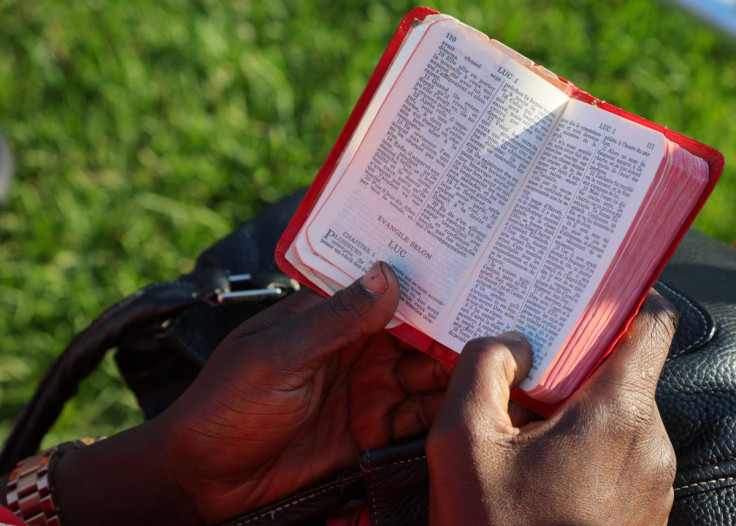Winding Up Canada Trip, Pope Visits Historic Churches

Pope Francis on Thursday visits two of the oldest Roman Catholic churches in North America as he winds up a trip to Canada centered on his apology for the Catholic Church's role in the country's notorious residential schools.
In the morning Francis presides at a Mass at the Basilica of Sainte-Anne-de-Beaupre in the town of the same name about 30 km (20 miles) outside Quebec City.
The oldest Catholic pilgrimage site in North America stands on the site where a small church was built in 1658 to house a statue of St. Anne that French colonists considered miraculous.
About a million people visit each year, many seeking cures from illnesses.
Thousands of people were arriving in the area early on Thursday, including indigenous groups from as far away as Natashquan, an Innu community about 1,000 km away by road.
About three-quarters of 1,400 places inside the basilica were given to residential school survivors and other indigenous people while thousands of others were gathering to watch the Mass on giant television screens outside.
Psychological counselors were on hand in case of need by residential school survivors.
"I adore the pope," said Carmen Ortega, a woman originally from Peru who traveled to Quebec with fellow Canadians of Latino origin.
In the afternoon, Francis was due to preside at a vespers service in the Cathedral of Notre Dame in Quebec City. It stands on the site where Samuel de Champlain, the French colonist and navigator who founded Quebec and New France, built a chapel in 1633.
The visits to the two churches come on the penultimate day of his week-long visit to Canada, where he has several times issued apologies related to the schools, which operated between 1870 and 1996.
'PAIN AND SORROW'
Shortly after his arrival in Quebec City on Wednesday, Francis met with Canada's leader, Prime Minister Justin Trudeau and Governor General Mary Simon.
In public addresses in the Citadelle de Quebec, the largest British fortress built in North America, Trudeau and Simon pointedly told him of the horrors of residential schools for indigenous that the Church ran for past governments.[L1N2Z81V5]
More than 150,000 indigenous children were separated from their families and brought to residential schools. They were starved or beaten for speaking their native languages and sexually abused in a system that Canada's Truth and Reconciliation Commission called "cultural genocide".
"As a dad, I can't imagine having my children being taken away. When my kids are crying, I can console them. When they're happy, I can share that feeling of joy with them," Trudeau said.
"But in residential schools, these children were alone and isolated in their pain and sorrow, far from their families and communities. And even worse, stripped of their language, their culture, their identity," the prime minister said.
The pope said the Church was "admitting our faults" and wanted to join civil authorities "to promote the legitimate rights of the native populations and to favor processes of healing and reconciliation" between indigenous and non-indigenous Canadians.
On Monday, the pope traveled to the town of Maskwacis, the site of two former schools, and issued a historic apology that called the Church's role in the schools, and the forced cultural assimilation they attempted, a "deplorable evil" and "disastrous error".
On Tuesday, he said the Church should accept institutional blame for the harm done to indigenous Canadians. [L1N2Z71BZ]
On his way back to Rome on Friday, he will stop for a few hours in Iqaluit in the Canadian Arctic, where the pope is expected to discuss the threat that climate change poses to indigenous communities.
© Copyright Thomson Reuters 2024. All rights reserved.











